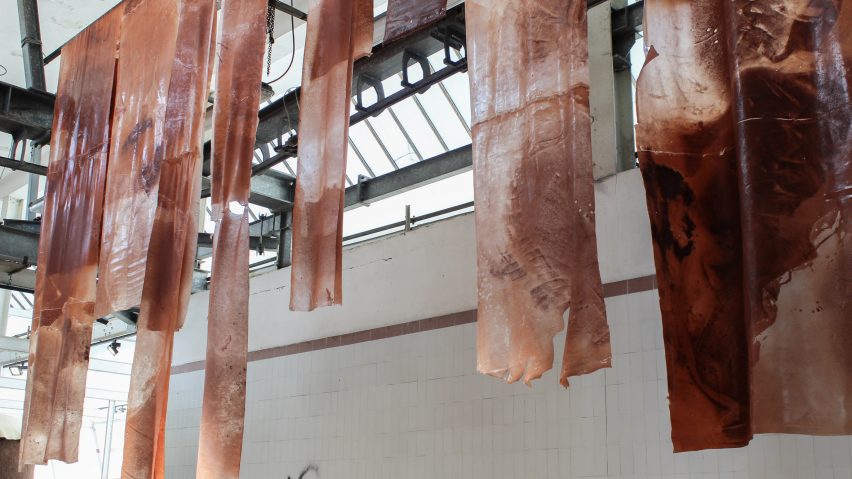
Natural Material Studio creates "flexible and organic" Brick Textiles
Copenhagen-based Natural Material Studio and designer Zuzanna Skurka have created an installation at Milan design week from soft bio textiles made from surplus bricks.
Called Brick Textiles, the project is on display at Alcova – a travelling exhibition platform for independent design that is held at a different disused site in Milan each year.
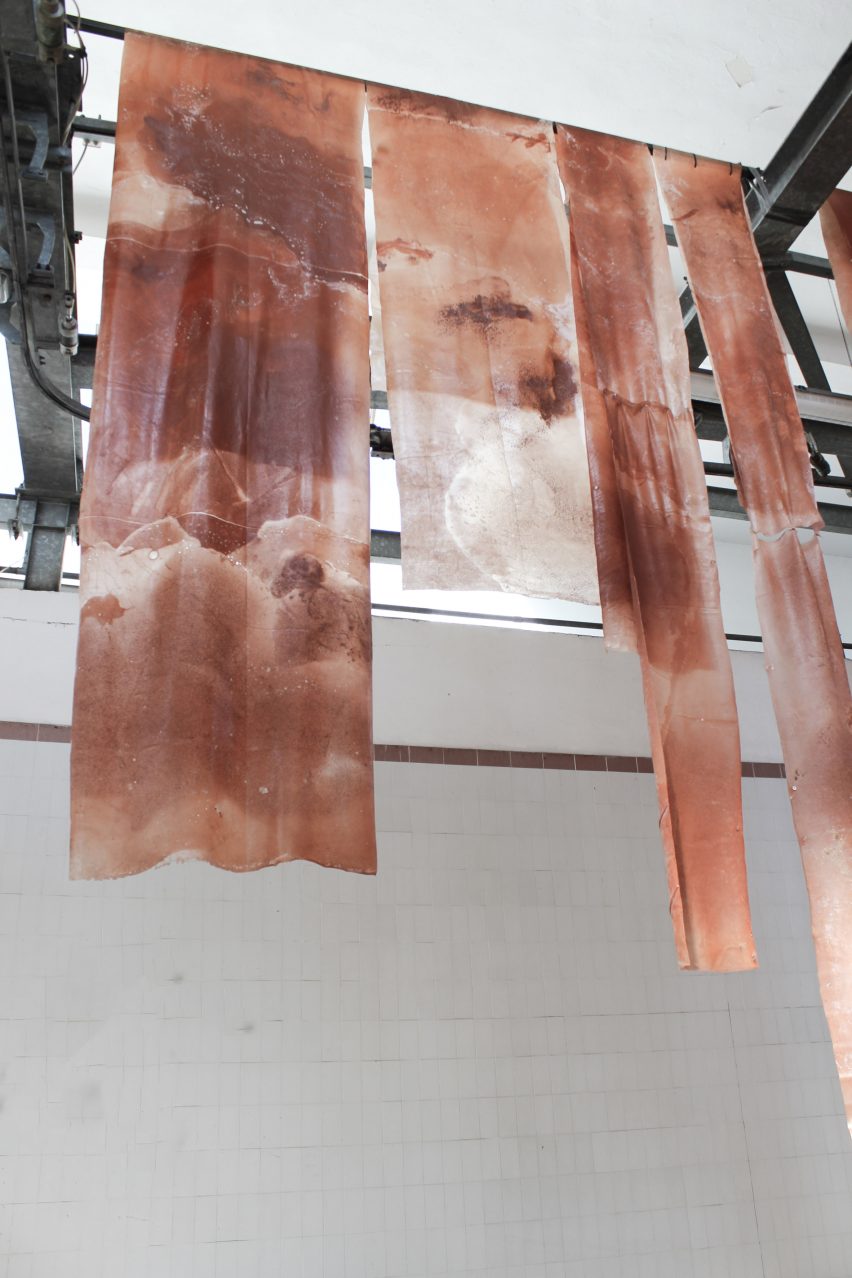
Natural Material Studio worked with Polish designer and researcher Zuzanna Skurka to create the textiles from highly porous repurposed bricks that were classified as waste after demolition projects.
"Rule one is, you should work with materials that are already there," studio founder Bonnie Hvillum told Dezeen in Milan.
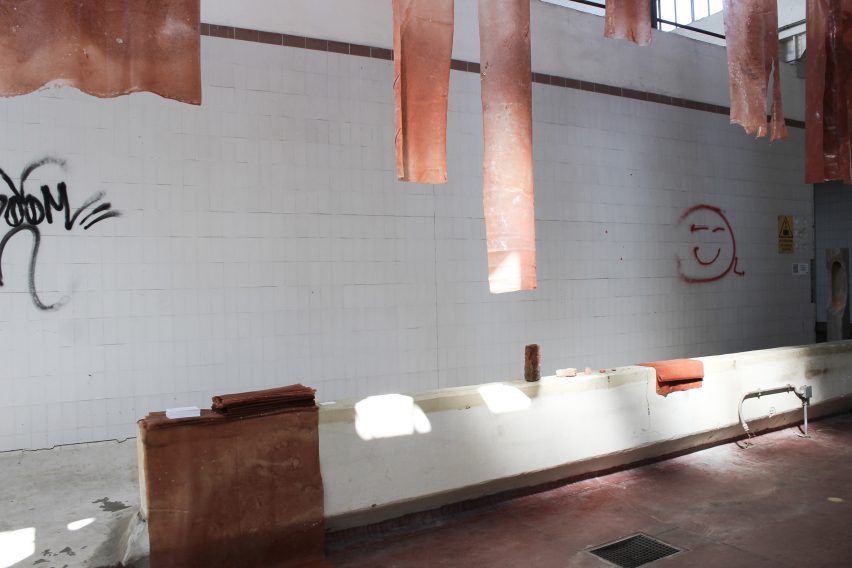
The textiles were made from a combination of crushed bricks bonded together with Procel – a home-compostable, protein-based bioplastic of natural softener and pigments developed by Natural Material Studio.
Featuring a distinctly reddish hue, the textiles were divided into large, roughly-cut slabs that hang suspended from the roof on metal bars in a room at Alcova to form a dramatic installation illuminated by skylights.
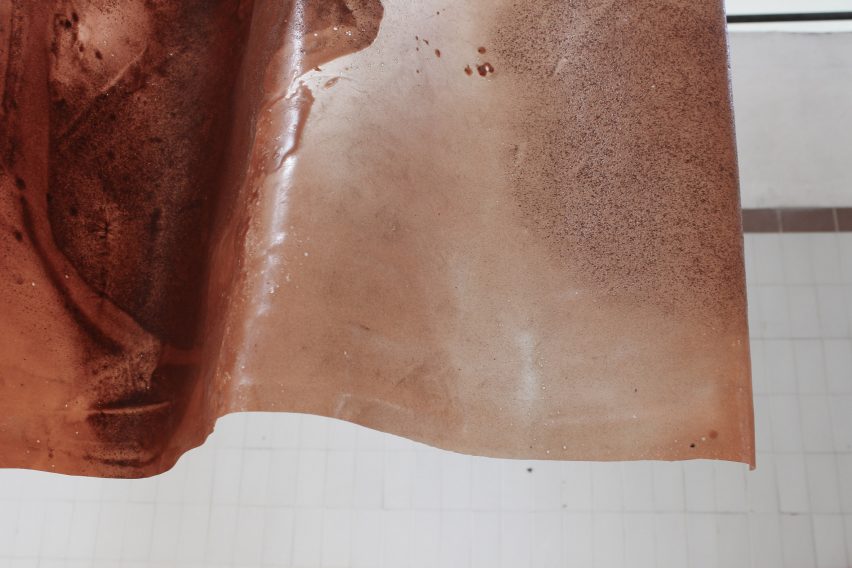
Natural Material Studio and Skurka drew upon traditional weaving techniques to create the textile, which was made by incorporating bricks and Procel into a "biomaterial matrix", according to Hvillum.
The material owes its strength, colour and texture to the bricks, which create unique swirly patterns on each slab that are produced randomly during the "fluid casting process", she explained.
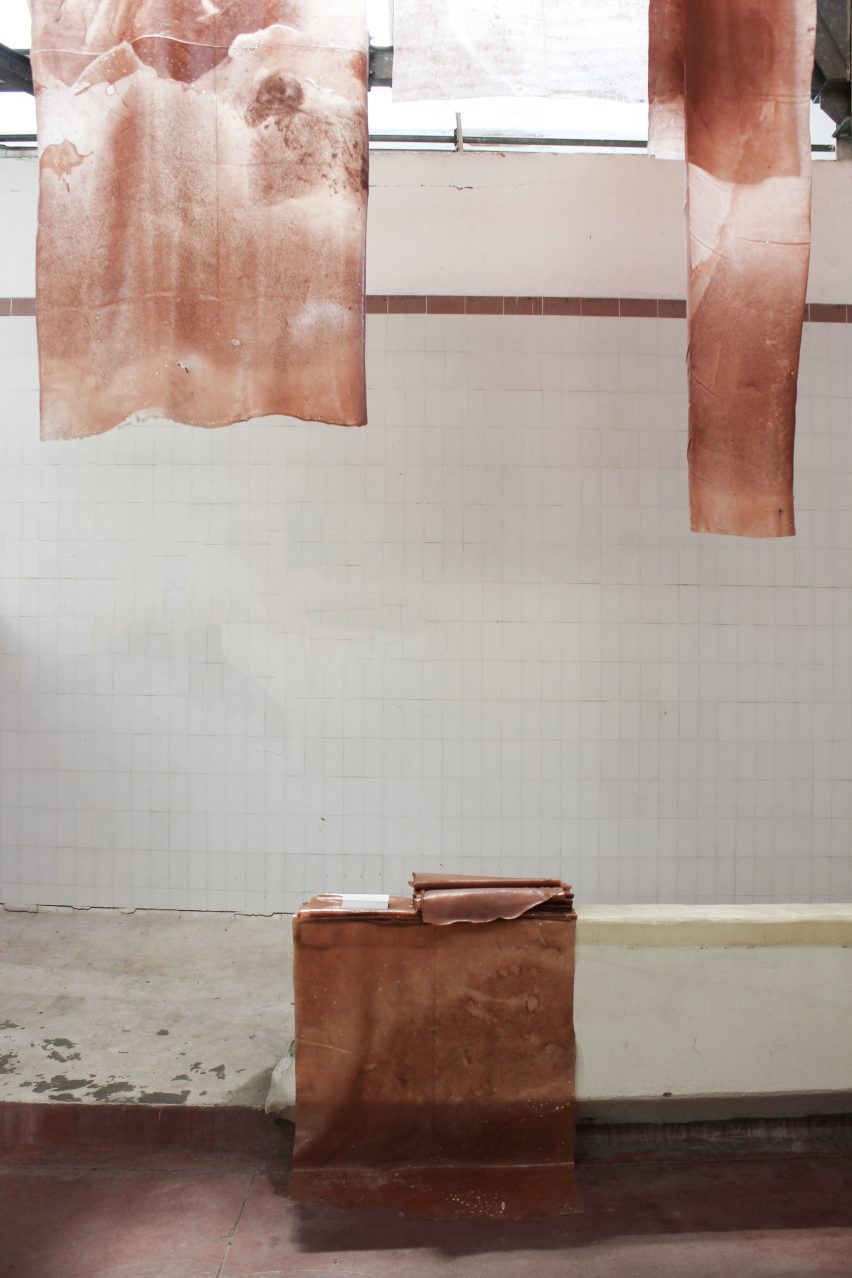
"We were very curious about this question of how can architecture be flexible, more simple and translucent even? added Hvillum. "It's all the opposite aspects of a brick."
"When we think of brick it's like a solid, rigid, structural wall," she continued. "But how can we make more flexible and fluid architecture today?"
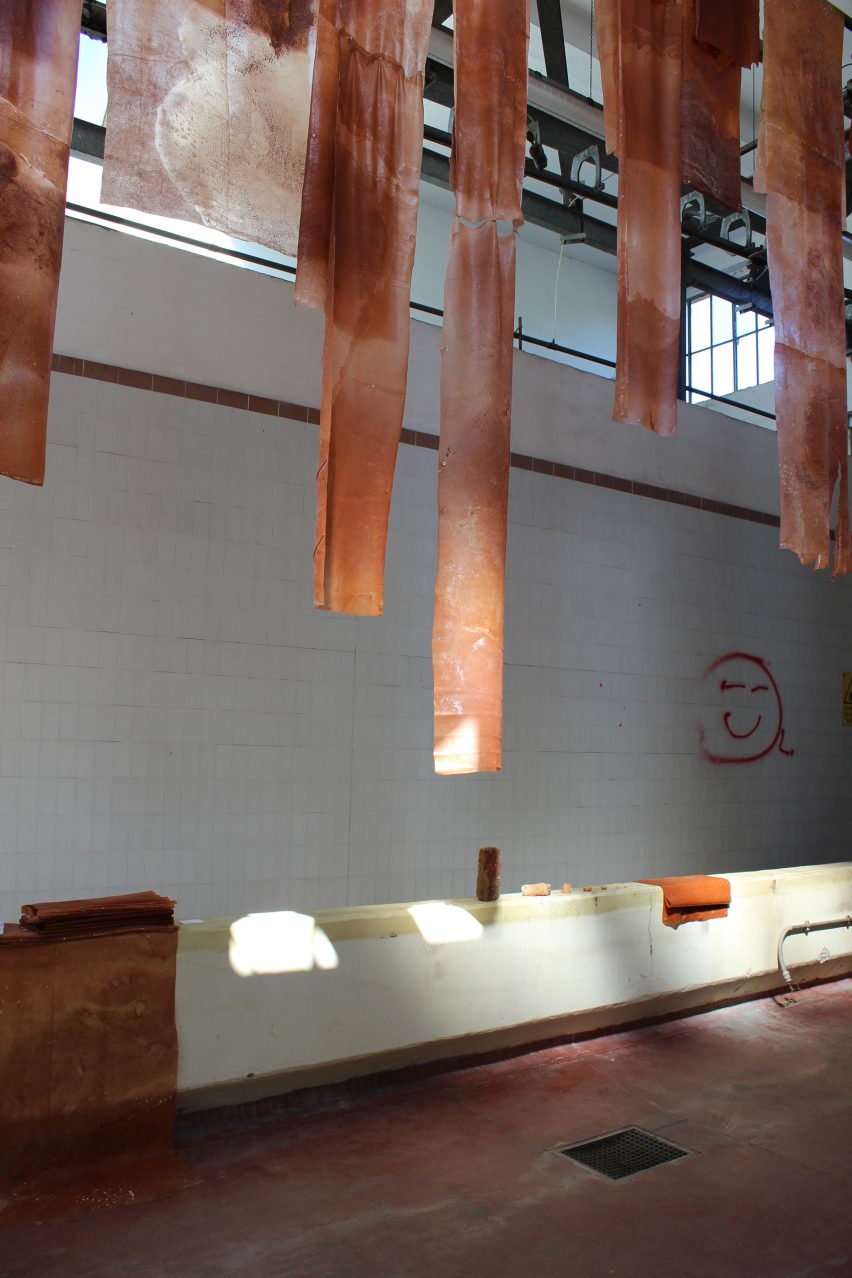
Holes were pierced into the corners of the slabs so that they can be linked together.
While the water-resistant textile is already being used by interior architects as room dividers, Hvillum said that the studio hopes that one day it could form whole walls.
"The way we build and how we live in the built environment shapes us, so if we can build a more flexible and organic biomaterial, we want to start the exploration of what that experience is," she continued.
This year, the Alcova exhibition takes place at a former slaughterhouse in Porta Vittoria. The formation of brick-based textiles hangs from metal bars where meat once hung at the site.
"There's something funny and a little bit rough about that image," acknowledged Hvillum.
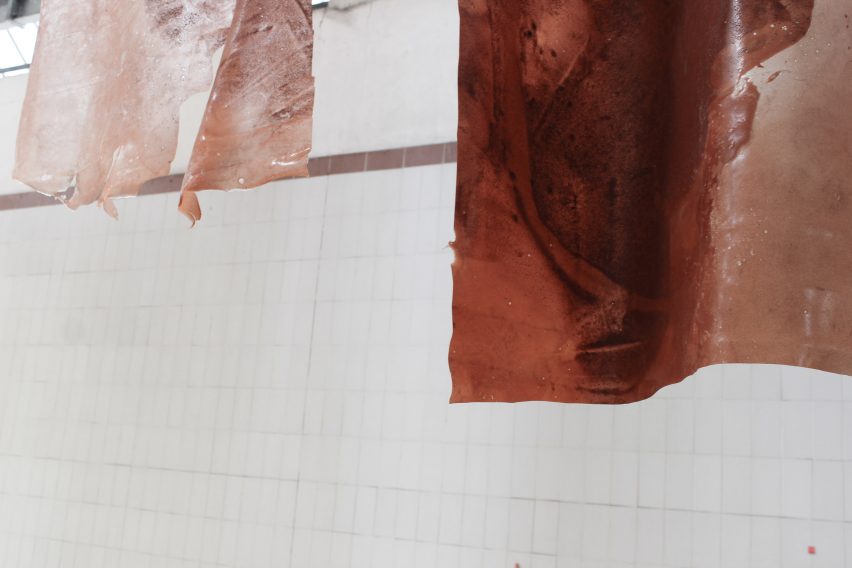
The materials specialist explained that Brick Textiles intends to salvage something from the past and propose fresh ways of thinking about an existing resource.
"It's new materials we're developing, so we still don't know everything about them," she reflected. "And that's the beauty and honesty of it."
Established in 2018, Natural Material Studio has created a number of repurposed materials for wide-ranging projects. These include crockery for a seafood restaurant made from leftover scallop shells and clothing created with algae, clay and foam.
Brick Textiles is on display at Alcova from 17 to 23 April 2023 as part of Milan design week. See our Milan design week 2023 guide on Dezeen Events Guide for information about the many other exhibitions, installations and talks taking place throughout the week.